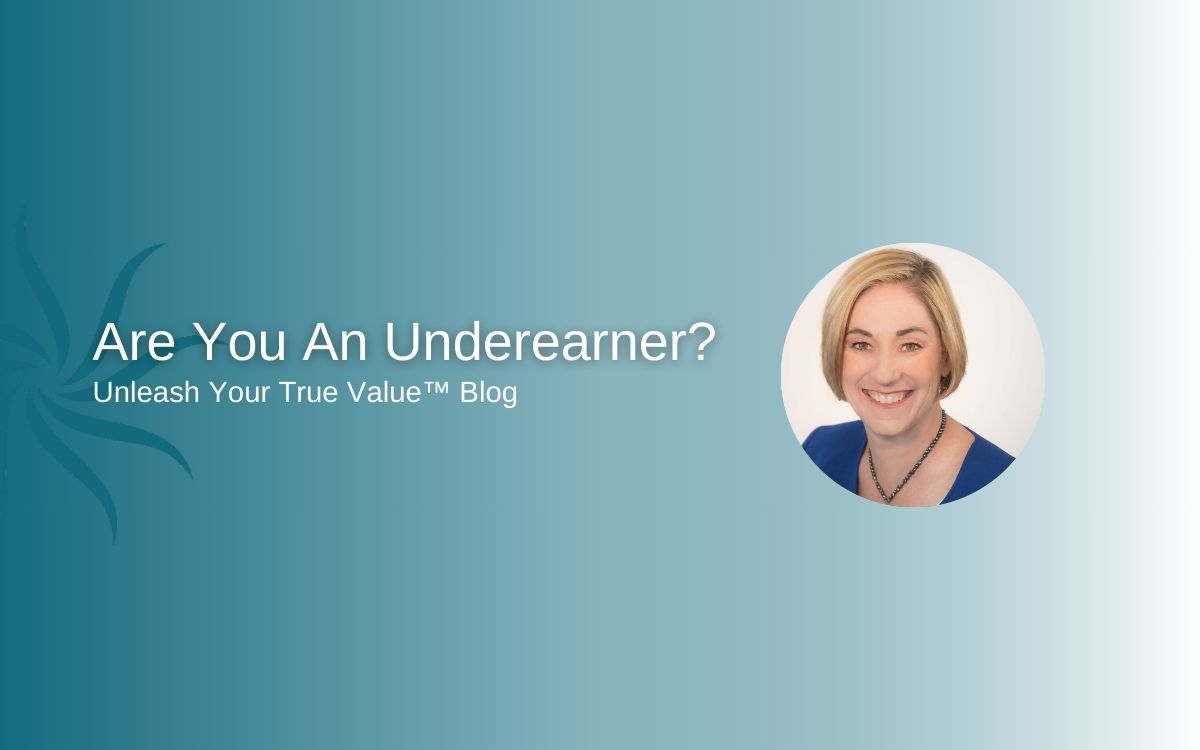
I first learned about underearning when I read Barbara Stanny’s classic book, Overcoming Underearning. My counselor had recommended this book, and at the time, I thought she was crazy. I was the kid that loved her toy cash register and the high school and college student that worked as a teller and loved it. How could I be an underearner if I was academically successful and worked as an FDIC bank examiner? Being a compliant patient, I bought the book and started reading it. Guess what, my counselor was right. I struggled with under earning! Like a lot of women, my low self-worth translated into a high tolerance for low pay and an underestimation of my worth. I never negotiated my salary and never thought to do so. I was raised with the belief that you were lucky to have a job and asking for more money was an insult to the person who hired you. Wow, I have come a long way!
Underearner was defined by Jerold Mundis, the author of the first book on the subject, Earn What You Deserve, as “to repeatedly gain less income than you need, or than would be beneficial and usually for no apparent reason despite your desire to do otherwise.” In other words, to earn below your potential. This phenomenon affects men and women in every industry at every earnings level. You don’t need to be poor to be an underearner. Many intelligent high achieving women fall into this trap. And like me, they may be blind to it.
To find out if you are an underearner, take the “Am I an Undereaner?”quiz. It is adapted from Barbara Stanny’s book and it will help you understand how your mindset about money may be negatively impacting your earnings.
Quiz: Am I an Underearner?
Circle the statements below that apply to you. When in doubt, go with your first reaction as gut responses are usually more accurate.
- I often give away my services (volunteering, working more hours than actually getting paid).
- I avoid asking for a pay raise or increasing my rates as it’s too uncomfortable.
- I work very hard for little money (multiple jobs, long hours).
- I feel that it’s unfair to earn a high income, while other people work harder than you do for less money.
- I find ways to avoid dealing with money (bartering, volunteering, delegating money management).
- I am in debt, with little savings, and no idea where my money is going.
- I am vague about my earnings.
- Recognition and praise is more important to me than money.
- The idea of having lots of money makes me feel uncomfortable or fearful.
- I have negative feelings about money and wealthy people.
Add up the number of statements that you circled. If you identify with two or more, chances are you are an underearner. Even a single response can indicate it’s time to look at how you think about money and your wages and its impact on your earnings.
If you don’t identify with these statements, good for you! You still may have work to do to clearly articulate your value and negotiate successfully, but your mindset about earnings may not be problematic.
If you are tired of leaving money on the table and under earning, it may be time to consider one of our Unleash Your True Value™ Private or Group Coaching Programs. Find out more by going to our website or setting up a free 30-minute coaching discovery call. I want you to feel as great as I do about your earnings!
